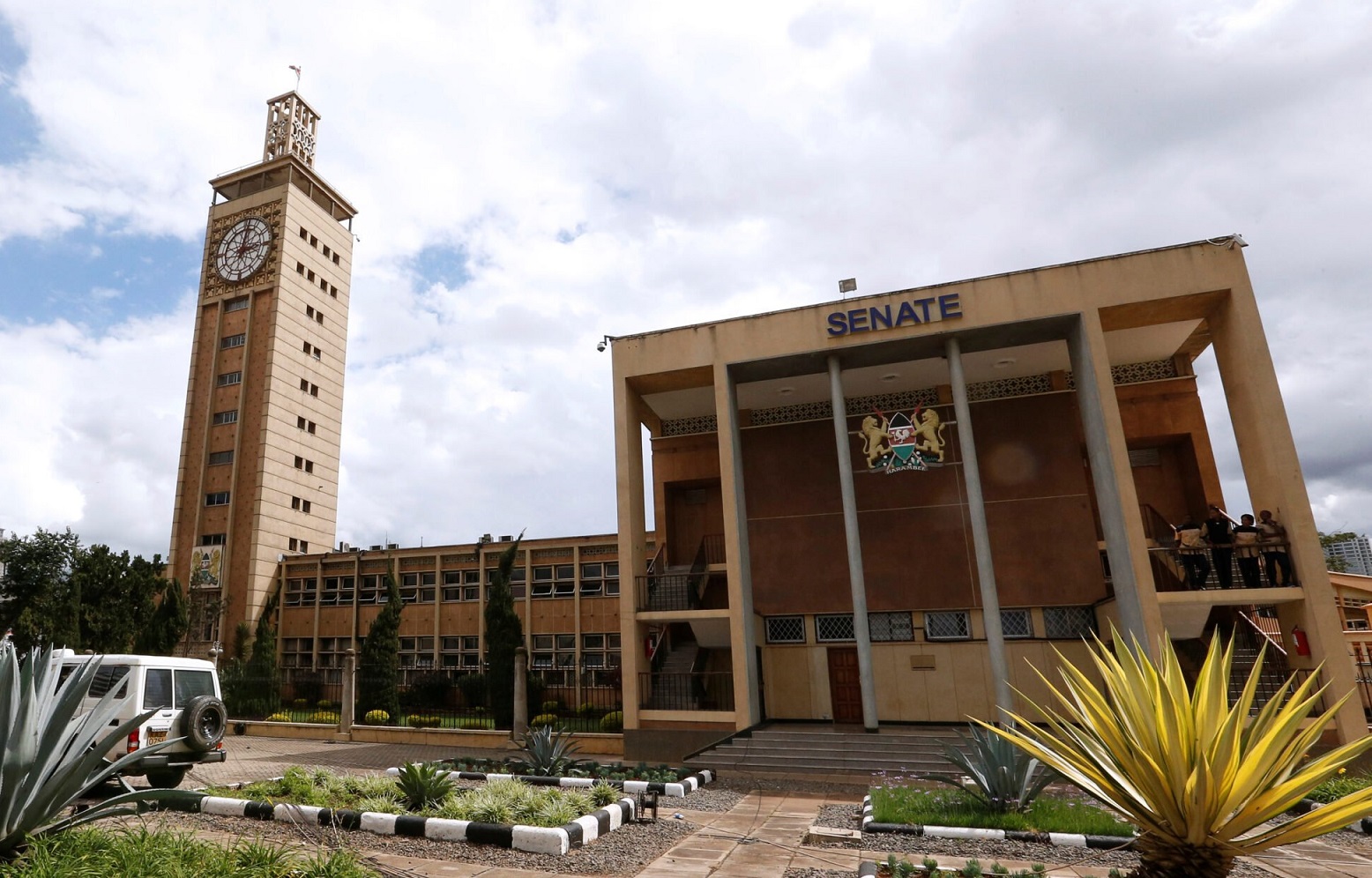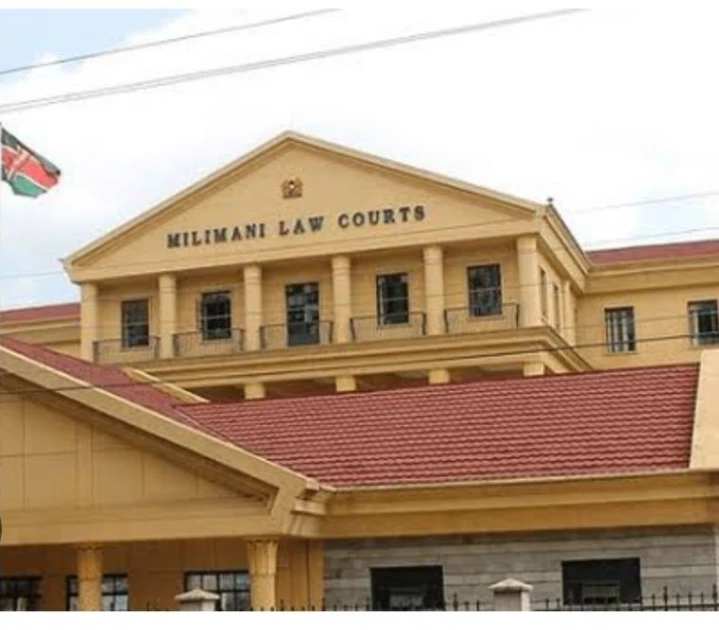JILL GHAI: State officers vs public officers: What's the difference and why does it matter?

A state officer and a public officer /AI ILLUSTRATION
The status of “state officer” did not exist under the old constitution. The phrase first appeared in the Bomas draft Constitution 2024.
Implications of being a state officer
First: who are they? Under the constitution all elected officers at national and county level, Cabinet Secretaries and their county equivalents, members of independent commissions listed in the constitution, judges and magistrates, the Attorney General, DPP, Auditor General and Controller of Budget, Secretary to the Cabinet, PSs and the one or two people at the top of the various security forces or services are all “state officers”.
These, you probably think, are the elite of the public sector and therefore expected to observe the highest standards and set the best examples. This is true and we see it particularly in Article 73 and the rest of Chapter Six called “Leadership and Integrity”.
The elite in a system make the important decisions. Parliament makes the laws, and it allocates money. The Cabinet makes policies, and approves draft laws, and its members head the ministries that implement laws. The judges and some commissions resolve disputes, and are part of a system that punishes those who commit crimes, as are the police.
So the constitution is also designed to prevent their abusing their powers for their own benefit. The constitution also states specifically that many of these officers are “independent”. Chapter Six is full of prohibitions of things that might influence state officers not to be independent and not to put the national interest first, but rather to benefit themselves or perhaps their parties. They come under the broad category of “conflict of interest”.
State officers (except judges and members of commissions) must have only Kenyan citizenship. People’s decision-making might be influenced by the possibility of their salaries or benefits being affected depending on their decisions. Judges are specifically immune from having theirs reduced while they are in office. And all state officers’ salaries are not to be made on a political basis but by an independent commission – the Salaries and Remuneration Commission
Another protection is that most state officers’ salaries do not have to be voted by the National Assembly every year. The constitution says that they are “a charge on” the Consolidated Fund – they are to be paid automatically out of that main government bank account with the Central Bank. So MPs cannot decide “We don’t like what the SRC has been doing so we shan’t vote money for their salaries”.
In the case of MPs the risk is a bit different but more stark. And if it were not for Article 230 they would still be fixing their own remuneration. They hate this – and at one point wanted to cease to be state officers; a Bill to do this was the very first constitution amendment Bill after 2010. Indeed they have tried several times to defy Article 230. That was the trigger for the first “Occupy Parliament” demonstration (the MPigs demonstration) in 2013.
State officers may not be exempt from tax – another measure probably mainly directed at MPs. An Act used to exempt MPs from income tax, but this provision was taken out in 2012 – in time for the election of the first Parliament under the new constitution.
The IEBC recruitment
When the recent interviews for IEBC commissioners were going on, the question of whether Ann Nderitu (Registrar of Political Parties) was a “state officer” came up. Why? Article 88 of the Constitution says that no one may be appointed as a member of the IEBC if they hold a state office.
You might think that is quite unnecessary – of course a person could not hold two state offices at the same time, or any full-time job. The reason for this is, I think, that the constitution says that members of commissions may be part-time.
Nderitu is a state officer – the Political Parties Act says so. She said that by the time of appointment should she could have ceased to be. Maybe so. But it’s not very satisfactory that the office of RPP should be vacant at a time of some election fever.
Public officers
Chapter Six is all about state officers, but also says that Parliament must pass law to ensure that “public officers” have similar obligations. In fact Parliament had gone a good way towards this before the constitution was passed, in the 2003 Public Officers Ethics Act inspired by the ongoing debate about a new constitution.
“Public officer” under that Act includes elected legislators, and workers in a government department, staff of public universities, members and employees of cooperative societies.
The phrase “public service” has two rather different, if related, meanings. In Article 232 on “values and principles of public service” it refers to the activity, and the mindset, of serving the public. That Article sets out various important principles including high standards of professional ethics; efficient, effective and economic use of resources; and responsive, prompt, effective, impartial and equitable provision of services.
It makes it clear that these principles apply to everyone working in state organs, at the national and the country levels, and state corporations.
There is also the idea of an institution called the “public service” – which is run by the Public Service Commission. It creates the offices in the public service, appoints the people who hold the offices and disciplines them.
Some state officers (like CSs) are not in the public service but are public officers. Article 230 says that apart, from fixing state officers’ pay the SRC, is to “advise” the governments on the pay of all other public officers.
However, the constitution’s slightly narrow definition of “public officer” becomes important. It means someone holding office in the national or a county government or the public service, but only if the salaries are paid “directly from the Consolidated Fund or directly out of money provided by Parliament.”
Confusing? It has certainly confused the courts.
State corporations
There is a huge variety of state corporations – more than 300 of them. Sometimes a state corporation is set up in order that it may operate more on commercial principles. Fixing salaries would be an aspect of that. Sometimes the purpose is to free it from state control in other ways – like universities (remember “academic freedom and freedom of scientific research” in Article 33).
This phrase about staff being “paid directly … out of money provided by Parliament” has caused difficulties. In fact the courts – including the Supreme Court - have made it meaningless. Maybe it’s not a bad thing if the SRC looks at salaries of people in state occupations – or the whole of the public sector. But I don’t think that’s what the constitution says.
The courts have not only extended “public officers” beyond what the constitution meant. A recent such case was about the NHIF – much of whose money comes from the public not directly from Parliament. But the Court of Appeal also decided that the “advice” of the SRC was binding. Their reasoning: the SRC is to take account of “the principle that the total public pay bill must be fiscally sustainable” (Article 230(5)). If what the SRC says can be departed from, that clause becomes ineffective, said the court. Unfortunately this interpretation completely overturns what was a deliberate constitutional distinction between state officers and other public officers. Courts have read the constitution to mean what they think it ought to say.
Interestingly, the Supreme Court held that, when the constitution says the commission on Revenue Allocation “makes recommendations” on sharing of revenue, it means what it says. Parliament must take the recommendations seriously but is not bound to accept them. But the Court of Appeal says that when the SRC “advises” on salaries that means something different from what it says.











